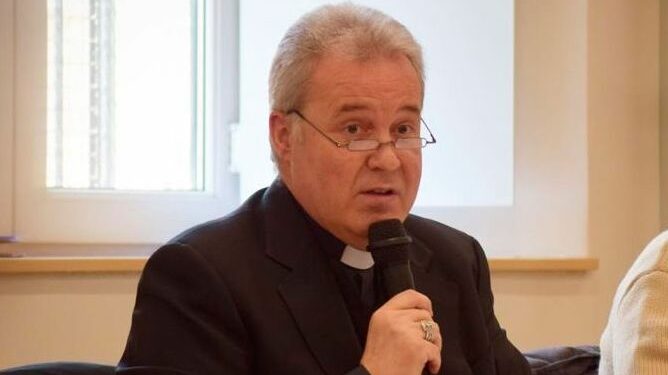Briefly, excommunication can be defined as the most serious penalty a baptized person can incur, which consists of being placed outside the communion of the faithful of the Catholic Church and denied access to the sacraments.
Cardinal Mauro Piacenza, major penitentiary emeritus of the Church, once explained that the purpose of excommunication is to bring “the guilty to repentance and conversion.”
“With the penalty of excommunication the Church is not trying in some way to restrict the extent of mercy but is simply making evident the seriousness of the crime,” he noted.
Why is a person excommunicated?
Excommunication is not only a punishment and goes beyond restricting access to holy Communion.
According to Canon 1339 § 2, along with excommunication “in the case of behavior which gives rise to scandal or serious disturbance of public order, the ordinary can also correct the person, in a way appropriate to the particular conditions of the person and of what has been done.”
What happens next?
Since the nuns have declared themselves no longer members of the Catholic Church, by remaining in the monastery they find themselves occupying the property of the Church to which they do not belong and have no legal right to stay there.
The archbishop has told them that they need to vacate the premises as a consequence of their actions but is taking a patient approach, hoping they will do so of their own accord by early July without having to be forcibly evicted.
The archbishop pointed out that although the nuns do not recognize his jurisdiction nor that canon law applies to them in this case, as established in Article 1.4 of the accord between Spain and the Holy See, Spain’s civil law recognizes the Church’s Code of Canon Law as governing in these matters such that “civil law abides by what canon law says in ecclesiastical entities,” just as the Spanish state recognizes the validity of a marriage officiated by a Catholic priest.
Regarding the false bishop Rojas and the false priest Ceacero, Iceta explained that “it’s been almost four weeks since they were told that they should not be in the monastery and in a steadfast and contumacious way they persist in being there,” so the legal authorities will act against them, probably more quickly than with the excommunicated women.
(Story continues below)
Subscribe to our daily newsletter
This story was first published by ACI Prensa, CNA’s Spanish-language news partner. It has been translated and adapted by CNA, along with related ACI Prensa content from here.
Credit: Source link




